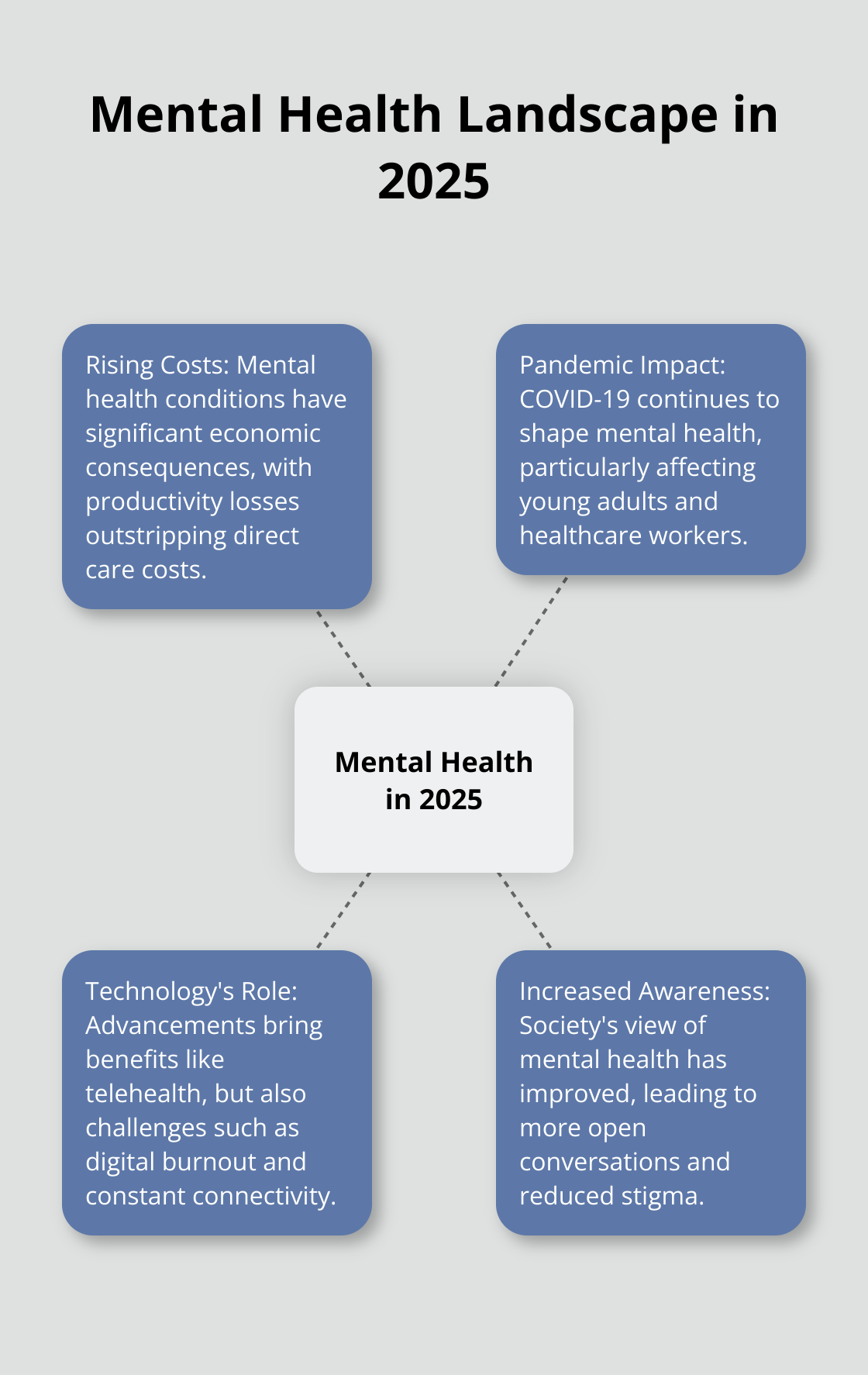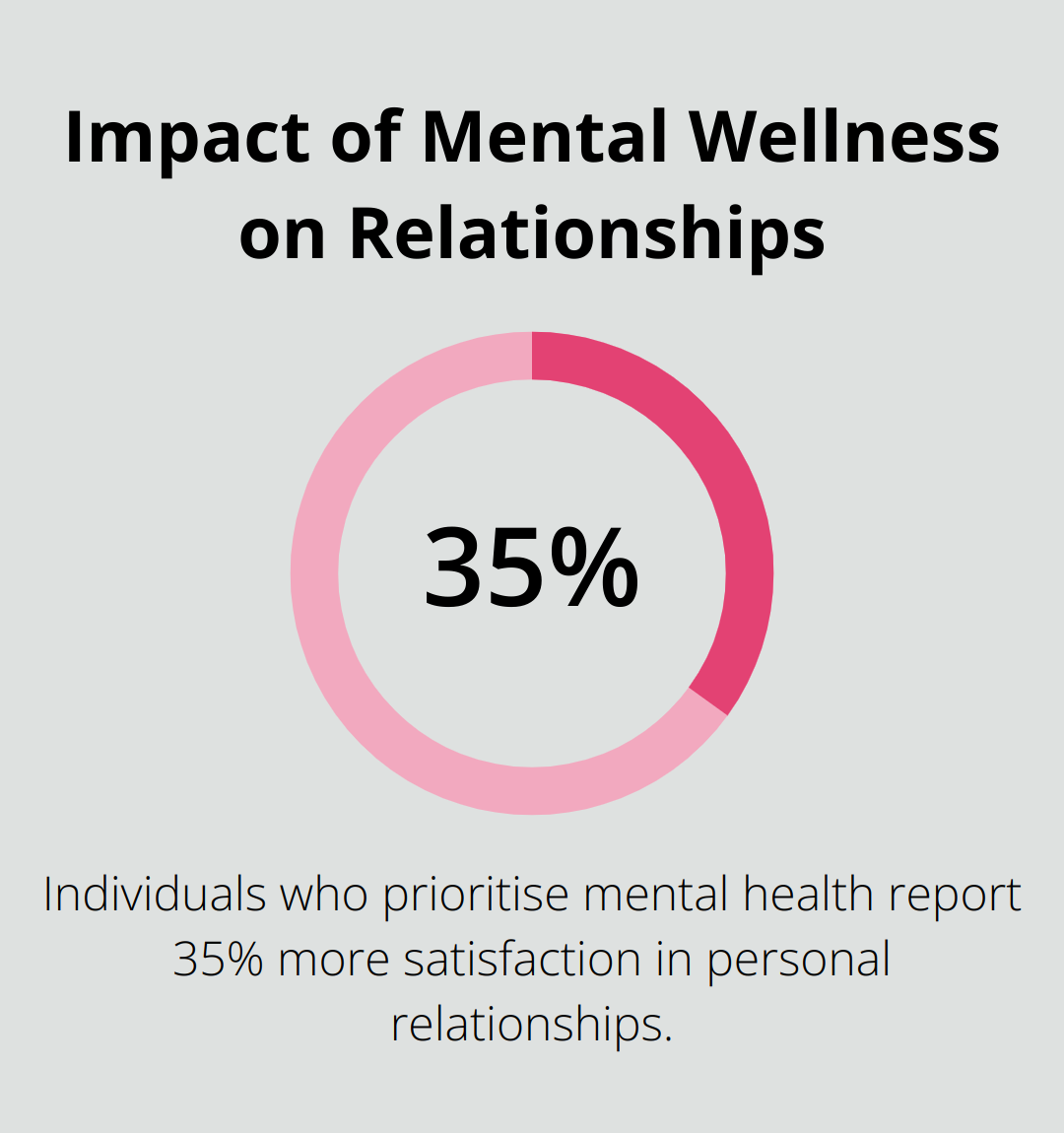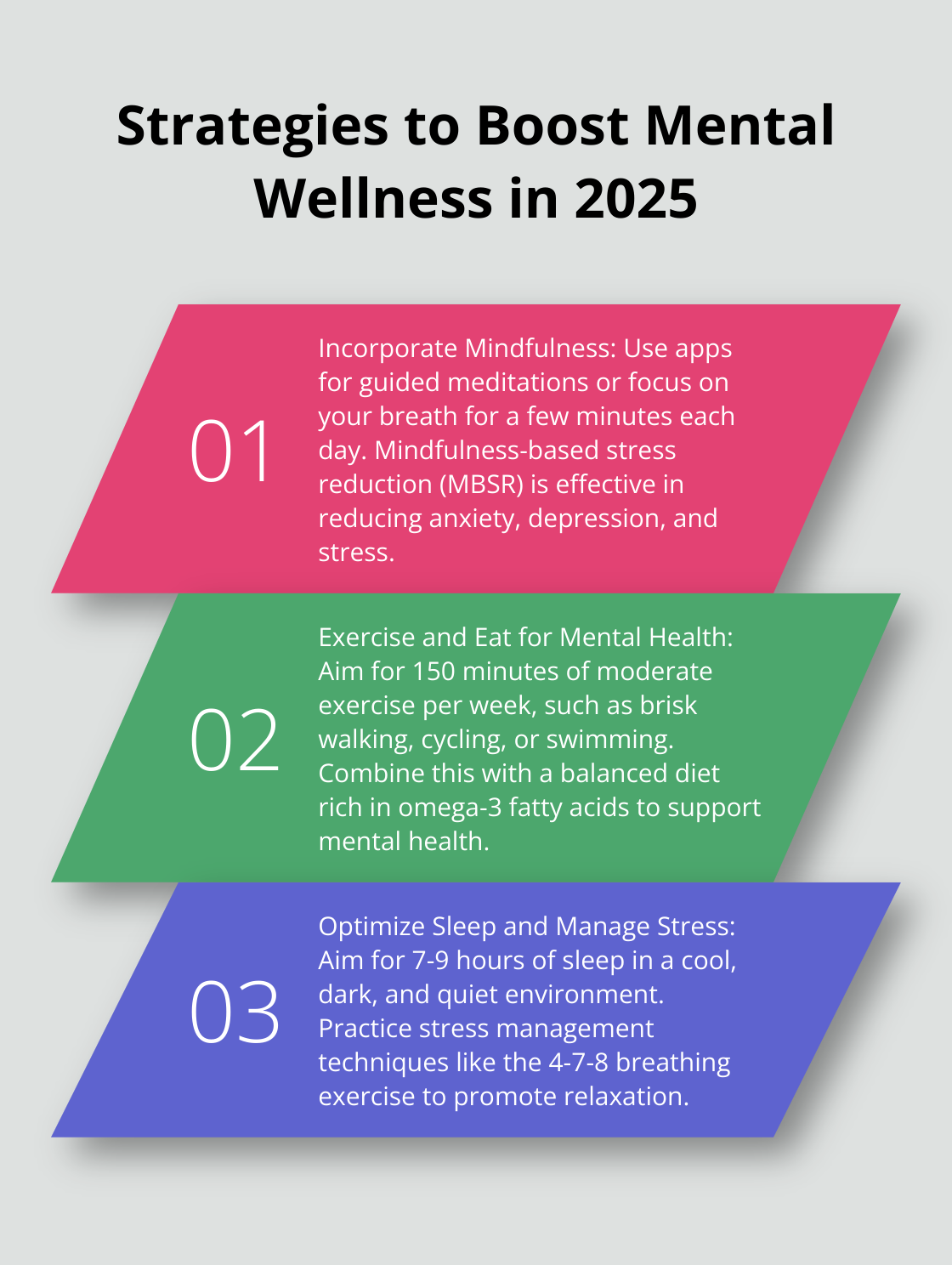Mental wellness has become a critical issue in 2025. Global events and technological advancements have significantly impacted our psychological well-being. Mental wellness is essential for a fulfilling life.
This article explores why it should be at the top of your priority list and provides practical strategies for achieving it.
5 Global Shifts You Didn’t Know Were Impacting Your Daily Life
Mental Health in 2025: A Wake-Up Call
The Rising Cost of Mental Health Issues
The landscape of mental health in 2025 serves as a stark reminder of the urgent need to prioritise psychological well-being. Recent data from the World Health Organisation reveals that mental health conditions have enormous economic consequences, with productivity losses significantly outstripping the direct costs of care. This sharp increase highlights the escalating impact of mental health on productivity in both individuals and businesses.
Pandemic’s Lasting Impact
The COVID-19 pandemic continues to shape our mental health landscape. While specific statistics are not available, mental health challenges remain a significant concern, particularly among young adults and health care workers.
Technology: Friend or Foe?
The rapid advancement of technology has brought both benefits and drawbacks to mental health. Telehealth services have made therapy more accessible. However, constant connectivity has also led to a rise in digital burnout. Many adults report feeling “always on,” which leads to increased stress levels and difficulty disconnecting from work.
A Positive Shift: Awareness and Acceptance
Despite these challenges, society’s view of mental health has improved. This increased awareness has led to more open conversations and reduced stigma, with more employees feeling comfortable discussing mental health issues with their managers.

The Role of Digital Well-being
The growing recognition of mental wellness’s importance marks a crucial step towards creating healthier, more balanced lives in our increasingly digital world. Services like CalmDigitalflow have observed a significant increase in users seeking digital well-being resources, reflecting this trend.
As we move forward, the focus shifts to understanding how these mental health trends translate into tangible benefits for individuals and society as a whole. The next section will explore the numerous advantages of prioritising mental wellness in 2025 and beyond.
Why Mental Wellness Matters
The Health-Happiness Connection
Mental wellness directly impacts physical health. Studies show that poor clinical management of physical comorbidity and multimorbidity in people with mental illnesses results in drastically reduced life expectancy. This highlights the importance of prioritising mental health for overall well-being.
Boosting Your Career
In the workplace, mental wellness is a game-changer. Employees who prioritise their mental health report higher job satisfaction and are more likely to advance in their careers. A survey by the American Psychological Association confirmed that psychological well-being is a very high priority for workers themselves.
Building Stronger Bonds
Mental wellness also plays a crucial role in relationships. When we’re mentally healthy, we’re better equipped to communicate effectively, empathise with others, and maintain meaningful connections. A study from the University of Michigan found that individuals who prioritise their mental health report 35% more satisfaction in their personal relationships.

Sharpening Your Mind
One of the most overlooked benefits of mental health is its impact on cognitive function. Regular mindfulness practices, such as meditation, improve focus, creativity, and problem-solving skills. Research from Harvard Medical School indicates that individuals who engage in daily mindfulness exercises show a 16% increase in cognitive flexibility.
The Ripple Effect
The benefits of mental wellness extend beyond the individual. A mentally healthy workforce contributes to a more productive and innovative society. Companies that invest in employee mental health (through programs like stress management workshops or flexible work arrangements) report higher retention rates and improved overall performance.
As we explore the numerous benefits of mental health, it becomes clear that this is not just a personal issue, but a societal one. The next section will provide practical strategies to boost your mental wellness 2025 and beyond, helping you harness these benefits in your own life.
How to Boost Your Mental Wellness in 2025
Incorporate Mindfulness into Your Daily Life
Mindfulness is a powerful tool for mental health. Research suggests that mindfulness-based stress reduction (MBSR) is effective in reducing experiences of anxiety, depression, and stress. Start small: use apps for guided meditations or focus on your breath for a few minutes each day.
Exercise and Eat for Mental Health
Physical activity improves mood significantly. Exercise can reduce symptoms of depression and anxiety. A 2006 review of 11 studies determined that exercise could have positive effects on mental health. Try 150 minutes of moderate exercise per week (brisk walking, cycling, or swimming). Combine this with a balanced diet rich in omega-3 fatty acids (found in fish and walnuts) to support mental health.

Optimise Sleep and Manage Stress
Sleep acts as your brain’s reset button. The National Sleep Foundation recommends 7–9 hours of sleep for adults. Create a sleep-friendly environment: keep your bedroom cool, dark, and quiet. For stress management, practice the 4-7-8 breathing technique (inhale for 4 seconds, hold for 7, exhale for 8). This simple exercise promotes relaxation.
Connect with Mental Health Professionals
Don’t hesitate to reach out to mental health experts. Teletherapy has increased access to counselling. Online therapy platforms offer convenient options for professional support.
Balance Digital Life and Real-World Experiences
In our hyper-connected world, digital overwhelm is a real concern. Try a 24-hour digital detox once a week. Use apps to block distracting websites and apps during work hours.
Mental wellness is an ongoing process. These strategies provide starting points. Experiment to find what works best for you and prioritise mental health in your daily routine. Consider exploring stress-free jobs that offer flexibility and autonomy for a more balanced lifestyle.
Final Thoughts
Mental wellness stands as a fundamental aspect of our overall health and success in 2025. The challenges we face in our rapidly evolving world make it essential to prioritise our psychological well-being. Improved physical health, enhanced career prospects, stronger relationships, and sharper cognitive abilities are just a few of the long-term benefits that come from making mental health a priority.
We encourage you to take action now. Start small: incorporate mindfulness practices into your daily routine, optimise your sleep habits, or reach out to a mental health professional. Every step you take towards better mental health will become an investment in your future.
